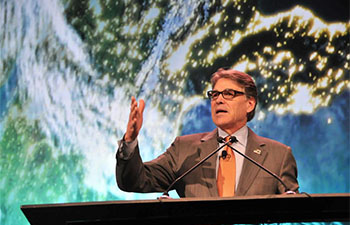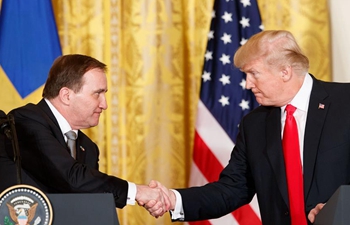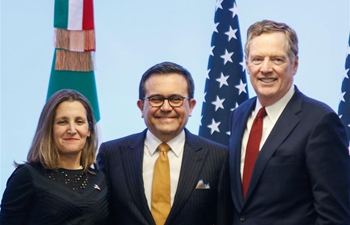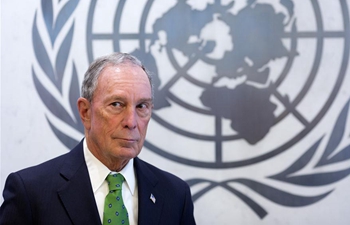WASHINGTON, March 8 (Xinhua) -- The U.S. tariffs on steel and aluminum imports will have a negative impact on its own economy, an economist with the U.S. global policy think tank RAND Corporation said Thursday.
Howard J. Shatz, a RAND senior economist, made the remarks in a written interview with Xinhua as U.S. President Donald Trump formally signed proclamations to impose steep tariffs on imported steel and aluminum amid mounting dissent from business groups and trading partners around the world.
"The tariffs are a tax, and higher taxes are usually counterproductive to economic growth," said Shatz, adding "The weight of the evidence is that freer trade is more beneficial to the economy as a whole, although it is also true that some groups get hurt and some groups get helped."
The steel- and aluminum-manufacturing industries are likely to benefit from the measures but "those industries that use steel and aluminum are likely to lose out ... and the overall effect on the U.S. economy is likely to be negative," the economist also said.
The new tariffs, which Shatz said play a role in appealing to many of the president's blue-collar supporters, have also raised the prospect for a trade war as Washington's trading partners, including the European Union, are mulling their counter-measures to defend their own interests.
"There is likely to be retaliation, but we do not even yet know the true scope of the tariffs," suggested Shatz, adding that Trump "left open the possibility that the tariffs would be negotiable country-by-country."
Shatz predicted that countries are likely to retaliate and appeal to the World Trade Organization with the tariffs being institutionalized.
"It's important to wait and see how this develops ... the past track record suggests the retaliation will be measured," he said.
A real trade war in which the major trading countries broadly raise tariffs and create other barriers will be damaging to global trade and domestic economies throughout the world, Shatz said, urging all sides to prevent a trade war.
The international economy expert who has spent over a decade studying trade deficits -- a major concern of the Trump administration, also pointed out that the tariffs and other possible measures are unlikely to bring the U.S. current account into balance.
"A major cause of the imbalance is the fact that savings are low relative to investment," he said. "Some people believe that the dollar's role as the world's major reserve currency is also a factor."













